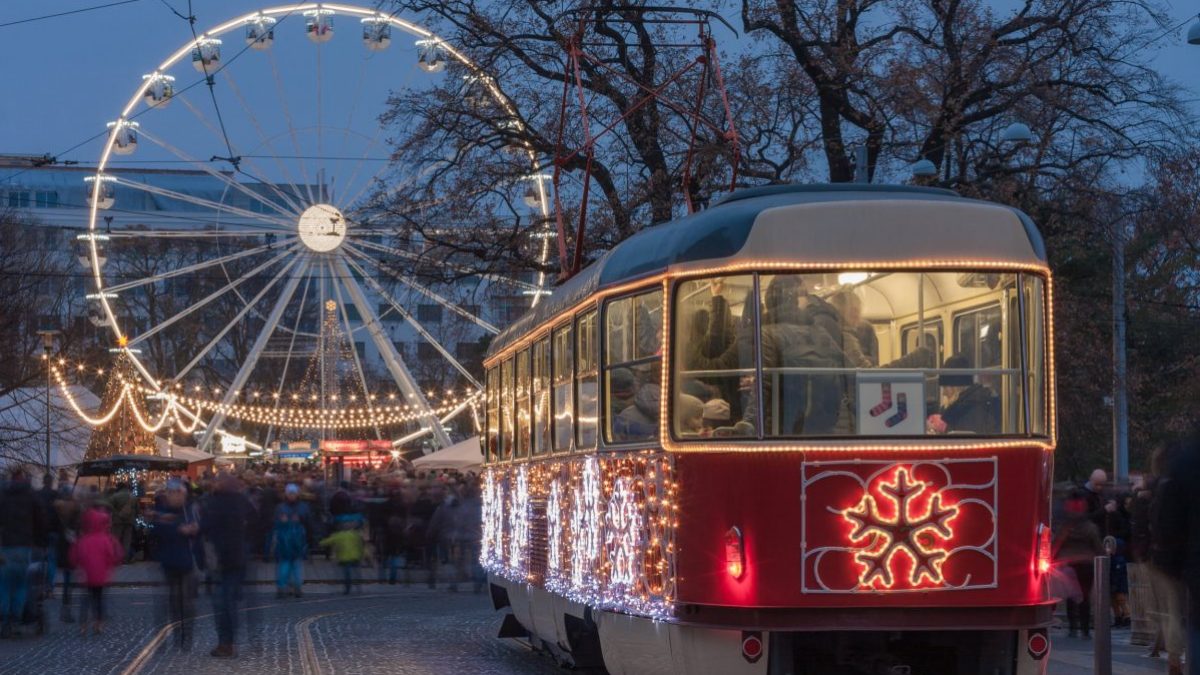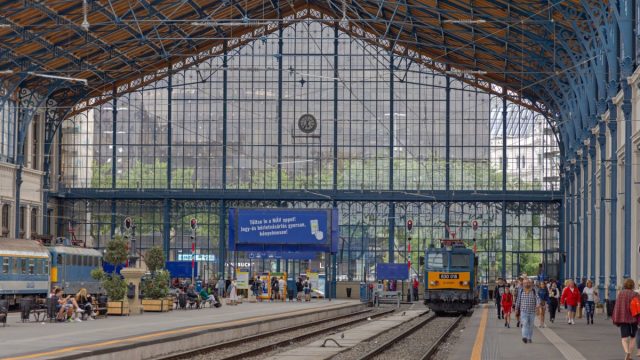It has been 25 years since I last pounded the handsome streets of Brno, a city within the South Moravian region, 130 miles south-east of Prague. It’s good, then, to spot a familiar grin – albeit one belonging to a dead crocodile dangling above the entrance to the Gothic Old Town Hall.
“This is the Brno Dragon,” announces Sara Anna Hudcovicova, destination manager at the city’s tourist information centre, unaware we’ve met before.
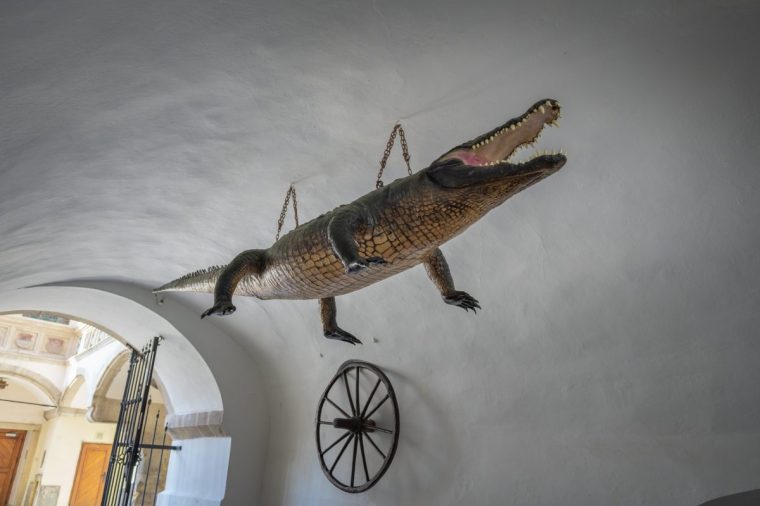 The Brno dragon has a ferocious backstory (Photo: Getty)
The Brno dragon has a ferocious backstory (Photo: Getty)
The story goes that the suspended beast is a ferocious monster that terrorised medieval Brno. That is before an enterprising butcher tricked it into eating caustic lime. The lime expanded; the unlucky dragon solidified from the inside out.
The more probable explanation is that the reptilian remains were a gift from a visiting dignitary to a local prince in the 16th century.
Either way, the (now replica) “dragon” feels like an apt city symbol, conjuring up a storied past and revealing a tongue-in-cheek humour. “Soon the dragon will get a red-and-white-striped Christmas jumper that lights up,” says Hudcovicova. The arrival of winter is a big deal for more than the reptile’s wardrobe.
This year Brno is the European Capital of Christmas. The award, organised by the not-for-profit European Christmas City Network and supported by the European Parliament, recognises places that preserve local Christmas traditions. Since it began in 2018, titles have been awarded to Genoa, San Sebastian and Kyiv.
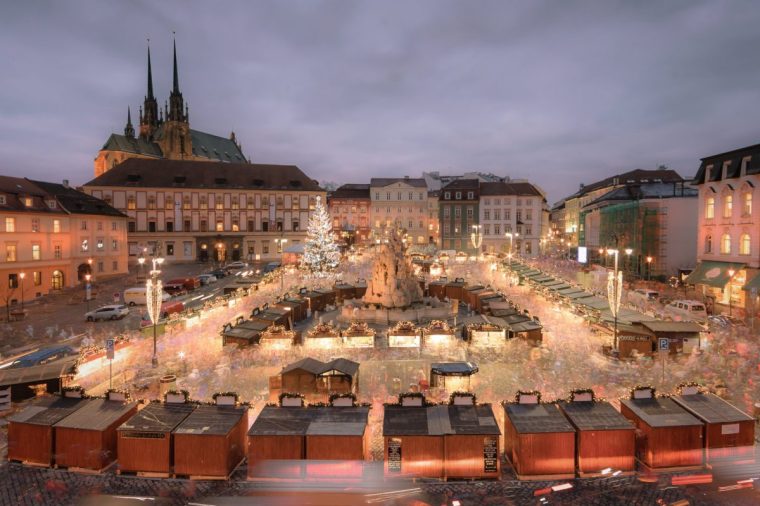 Expect the full Christmas market experience (Photo: Supplied)
Expect the full Christmas market experience (Photo: Supplied)
The jury noted Brno’s creativity, praising the city’s “most atmospheric Christmas scene”.
While Brno is Czechia’s second city – with around 400,000 residents compared to Prague’s 1.3 million and hosting 89 per cent fewer visitors last year – its compact, under-the-radar atmosphere is a big part of its charm.
Not that the planned celebrations lack pizazz. From 22 November, advent markets will bring cheer to five city squares and feature a towering tree, Ferris wheel, concerts, a 100-piece nativity scene, an ice rink and stalls showcasing some of the city’s best restaurants.
Warming svarak (spiced wine) and Turbomost (cinnamon-infused cider) will be served in reusable cups. Light installations crafted from recycled materials will add more sparkle and limited-edition souvenirs will pay homage to the dragon. “A lot of effort has been put into collaborating with local producers and artists,” says Hudcovicova.
I’m exploring the city in autumn, when there’s still a carefree summer buzz.
Brno is an energetic university city with around 70,000 students who mill around the espresso bars and microbreweries that are hidden behind pastel-hued art nouveau facades.
I step on to the Cabbage Market, where vendors have showcased fresh produce since the 13th century. The soaring twin spires of the Cathedral of St Peter and Paul provide a dramatic backdrop, while across the square stands the Reduta, the oldest theatre in Central Europe; the statue of Mozart recalls the concert the 11-year-old virtuoso gave here during Christmas 1767.
I discover a more clandestine history underground. A tour of the cellars – once market storerooms – reveals a model 16th-century alchemist’s lab, a nod to when the region was a hotbed of chemists obsessed with turning base metals into gold. Deeper in, a replica pillory and “cage of fools” recall the darker side of 17th-century marketplace life, while an old wine cellar and period tavern highlight the region’s winemaking tradition.
Back at street level, thriving contemporary Moravian winemaking is evident at Kohout Na Vine, a stylish restaurant. My excellent, seasonal three-course set lunch of pumpkin soup, rooster and chicory, followed by goat’s cheese ice cream and candied beetroot, comes in at under £20.
This good value is replicated throughout my stay in a city where a glass of crisp local Riesling costs around £3, and a tankard of beer is less than £2.50.
Brno’s past is also revealed in other subterranean spaces. At the hilltop Spilberk Castle, dark passageways in the bowels of the fortress allow me to understand why, for a time, it became notorious as the harshest prison in the Hapsburg Empire.
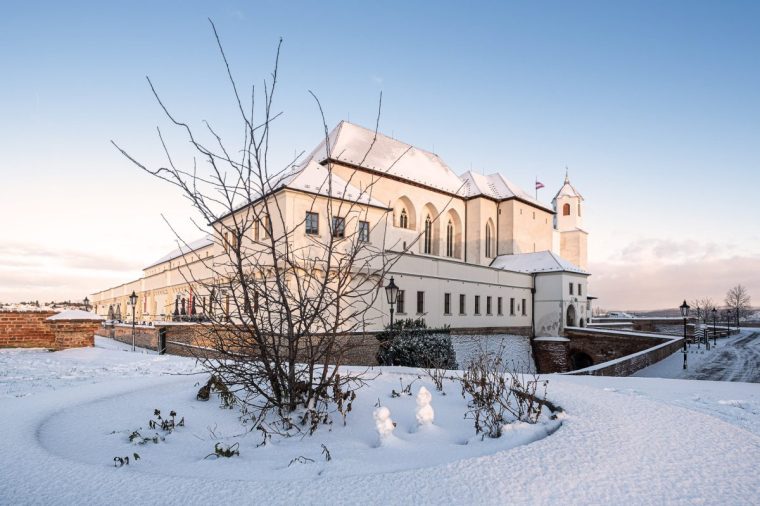 Spilberk Castle was once the harshest prison in the Hapsburg Empire (Photo: Supplied)
Spilberk Castle was once the harshest prison in the Hapsburg Empire (Photo: Supplied)
This Christmas, a new light park chronicles tales of medieval life (until 12 January) while an exhibition commemorates 100 years since Czechia’s first public Christmas tree was lit in Brno’s Freedom Square. During my stay, I also find off-beat sculptures and a buzzing nightlife. Super Panda Circus brings a playful speakeasy vibe with psychedelic interiors, where a game of chance can even decide your cocktail. For a more traditional touch, Pegas serves house-brewed lager, top-fermented wheat beer and warming plates of brewer’s goulash.
Then there’s the hottest ticket in town: the Unesco-protected functionalist masterpiece, Villa Tugendhat. With three more historic villas to explore close by, there’s plenty for fans of early 20th-century design. Villa Stiassni is a particular treat during advent when it is dressed in vintage holiday décor alongside a Hanukkah menorah. Hour-long tours (in Czech) reveal how Christmas was celebrated in the 1930s by the Jewish family who built it before they fled the Nazi occupation.
On my last afternoon, I explore the beautifully curated Museum of Romani Culture, the only one of its kind in Europe, before squeezing in a visit to the Moravian Gallery. I admire zig-zagging walkways, extravagant sculptures and sparkling Czech glass, all within a renovated Renaissance Revival building.
Emerging, this time I’m not facing a dragon; instead, I’m below The Cloud, a floating installation that changes colour in response to its surroundings. It glows and pulses in a city filled with legends and traditions yet at home with innovation and change.
Getting there
Ryanair flies direct to Brno from Stansted. Alternatively, it’s a 2.5-hour train ride from Prague or 1.5 hours from Vienna.
Staying there
Hotel International, located between the castle and historic centre, has doubles with breakfast from £96, hotelinternational.cz.
More information
The Christmas programme runs from 22 November 23 December 2024, brnenskevanoce.cz/en
gotobrno.cz/en
visitczechia.com
